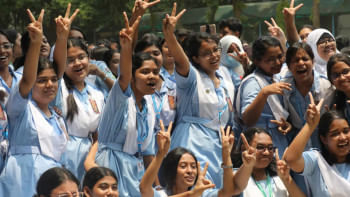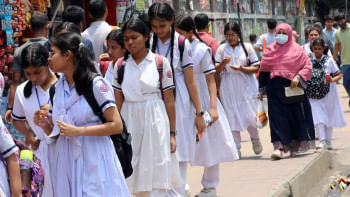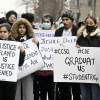Do our leaders even care about what young people think or need?

Bangladesh is facing enormous economic challenges caused by both external and internal factors. But it is also in a deep moral crisis, as corruption and lawlessness have spread their tentacles in every sphere of society. Among the most-affected are young people who are supposed to be our future leaders. But how optimistic are they about their own future? Do we know how they feel or what they think? Most importantly, do our leaders even care?
These are burning questions that our policymakers and all those in positions of power must think of and try to answer. In a population of 169.8 million, almost 28 percent are between the ages of 15 and 29. Having so many young people would put any country at a natural advantage, but to reap the benefits of this demographic dividend, the right policies, opportunities, and visions need to be there. Unfortunately for Bangladesh, it is this very vital demographic that is being completely neglected.
A recent column in this paper has brought this issue to the fore, citing a survey of young people aged 16-35 that offered some damning findings: that 55.3 percent of the respondents think Bangladesh lacks peace, 71.5 percent are not comfortable about expressing their views publicly, and 68.6 percent are frustrated with the education system. An overwhelming 89 percent said corruption affected their wellbeing. They also cited unemployment, inflation, and climate change as contributing reasons. It is no wonder, then, that so many young people see no future for them in their own country; a large number are looking for opportunities to migrate to other countries.
Educationists and potential employers have been crying themselves hoarse about the lack of skills of young people applying for jobs. Only a miniscule percentage actually qualify and get employment. Those who are left behind either stay jobless or take up low-paying jobs in the informal sector. Many become involved in criminal or corrupt activities, which seem to offer the only means to survive. Crime in the name of student politics has also turned many young people away from politics. The rising number of criminals connected to power and wealth, who get away with the most heinous crimes, has created a deep mistrust in the system. The perception is that there is no justice for the ordinary person. When young people see their seniors taking the unethical route and getting away with it, they either become disillusioned and frustrated, or decide to follow suit. The number of teenage gangs committing serious crimes such as extortion and murder is on the rise.
The lack of role models, the trend of rewarding corruption and punishing honesty, the widening gap between the rich and the poor, and a huge dearth of opportunities to acquire the right education and skills for the desired employment or entrepreneurship—these are some of the overriding factors robbing our youth of their potential.
The high dropout rates in secondary schools, the prevalence of child marriage (with a staggering 41.6 percent of girls still married under 18), and 39.88 percent of the youth being involved neither in studies nor in work—these are foreboding indicators of economic and social decline, hurting the future of both our young generation and country at large. A nation that does not pay attention to the anxieties gripping most of its young people is just plain suicidal. We, for our own sake, must get off this dangerous path.


 For all latest news, follow The Daily Star's Google News channel.
For all latest news, follow The Daily Star's Google News channel. 











Comments